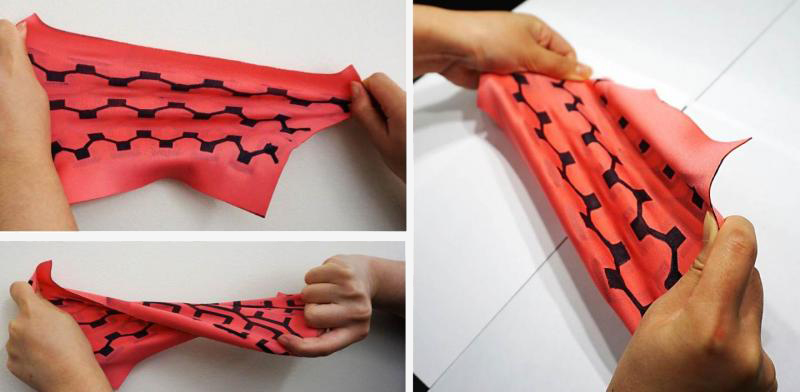
Researchers from Binghamton University have developed a textile-based bio-battery that could serve as the foundation for wearable electronics of the future.
Development of the flexible battery was led by Binghamton University Electrical and Computer Science Assistant Professor Seokheun Choi and is said to produce maximum power on par with his earlier paper-based microbial fuel cells.
The fabric-based battery exhibits stable electricity-generating capabilities, even when subjected to repeated twisting and stretching cycles.
Microbial fuel cells are viewed by some as the most suitable power source for wearables because the microbial cells act as a biocatalyst to provide stable enzymatic reactions and a lengthy lifespan. Even sweat generated from the body can be used as a potential fuel to support bacterial viability.

Choi said there is a clear and pressing need for flexible and stretchable electronics that can be easily integrated with a wide range of surroundings to collect real-time information. Such electronics, he added, must perform reliably even while intimately used on substrates with complex and curvilinear shapes, like moving body parts or organs.
Wearables are still in an early stage but it’s easy to see how a battery of this nature could be beneficial. Levi’s Commuter Trucker smart jacket, for example, utilizes a removable “snap tag” to drive the jacket’s advanced capabilities. Imagine how much better a wearable like that would be if its power source was woven directly into the garment.
The team’s research can be read in the paper, "Flexible and Stretchable Biobatteries: Monolithic Integration of Membrane-Free Microbial Fuel Cells in a Single Textile Layer," in Advanced Energy Materials.
https://www.techspot.com/news/72229-fabric-based-biobattery-could-power-future-wearables.html